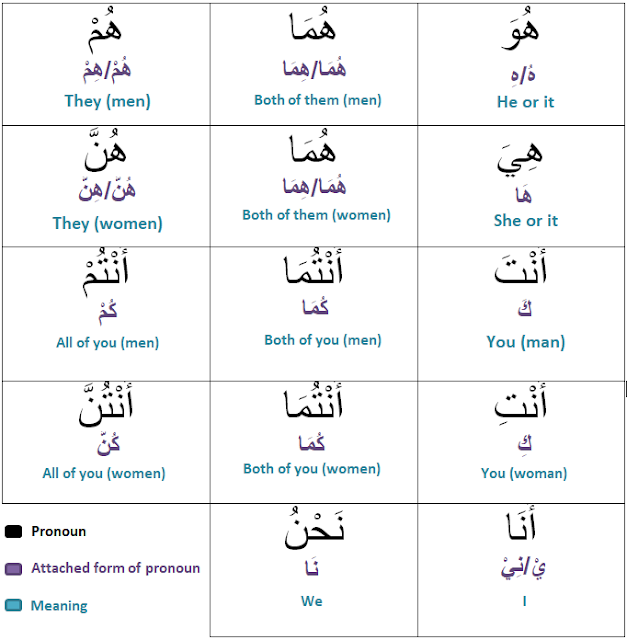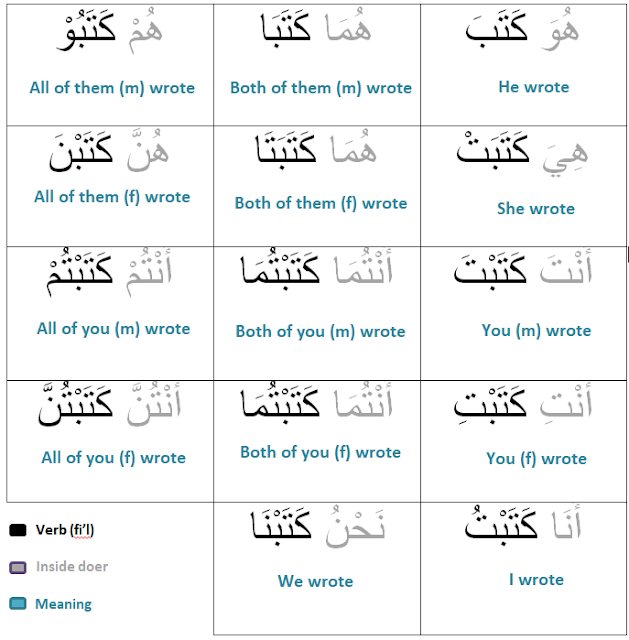Hadhiya (Blog post 11 (iv))
How
do we know that the Quran has been protected?
Imagine
a game of secret pass (I’m sure you played one of those). The one who starts
the game may have said “John hit Tom.” But as the message is passed secretly in
the circle, it keeps changing. And at the end, the message may turn out to be
something like “John broke into Ahmed’s house and burnt it down.” (way too exaggerated
but it does happen).
So
the idea is, when something is passed orally, the message is likely to change. This
is the western academics’ argument against the Quran. They say that the Quran
was passed orally from the Prophet (SAW) to his companions. And we know from
our tradition that the Quran was passed orally by many.
Now
imagine, Islam spread all over the world after the Prophet (SAW). There would
have been so many people who learned the Quran from his companions ORALLY in
Makkah and then went back to their own nations and taught what they learned
ORALLY. This has happened for centuries now. If the Quran was changing every
time it was passed orally from one person to the other, there should be
uncountable versions of the Quran by now. The Quran being recited in one
country should be different from the Quran recited in another country for the
very least. But what is the reality? To this day, even if you go to Saudi or
Europe or US or Pakistan or Maldives you will hear the exact same words. There
isn’t a difference of a single letter or even a single syllable. Even the way
you pronounce the letters of the Quran has been protected for centuries!
Allah
says:
إِنَّا
نَحْنُ نَزَّلْنَا الذِّكْرَ وَإِنَّا لَهُ لَحَافِظُونَ
“No doubt it is We Who
sent the remembrance (Quran) down and We will be its guardian.” Suratul Hijr, 9
*Notes on an episode of
the series ‘Quran for Young Adults’ by Ustadh Nouman.
****************************************************************
ޤުރުއާން ރައްކާތެރި ކުރެވިފައިވާކަން އަހަރުމެންނަށް
އެނގެނީ ކިހިނެއް ހެއްޔެވެ؟
ސިއްރުތައް ފުރަތަމަ މީހާއިން ދެވަނަ މީހާއިން ތިންވަނަ
މީހާއަށް ދައުރުކުރާ ކުޅިވަރެއް ޚިޔާލަށް ގެންނާށެވެ. އެންމެ ފުރަތަމަ މީހާ ދެވަނަ
ގާތު ބުނި ކަމަށްވެދާނެއެވެ. "އަހުމަދު ޢަލީ ގައިގައި ޖެހިއެވެ."
އެހެނަސް ކުޅިވަރުގައި ބައިވެރިވާ ބުރުގައި ހުންނަ އެންމެ ފަހު މީހާއާއި
ހަމަވާއިރު އެ ޖުމްލަ މިފަދަ ގޮތަކަށް ބަދަލުވެދާނެއެވެ. "އަހުމަދު،
ހުސެއިންގެ ގެއަށް ވަދެ އެގޭގައި ހުޅުޖަހައިފިއެވެ." (ތަންކޮޅެއް ބޮޑުވަރު
ވިޔަސް މިއީވެސް އޭތި ބަދަލުވެދާނެ ގޮތެކެވެ.)
މިތާނގަ ފާހަގަ ކުރަން ޖެހޭ މައިގަނޑު ނުކުތާއަކީ
ތުންތުންމަތިން އެއްވެސް އެއްޗެއް ފެތުރޭނަމަ އެ އެއްޗެއްގެ އަސްލު
ގެއްލިދާކަމެވެ. މިއީ ހުޅަނގުގެ ޢިލްމުވެރިން ޤުރުއާނާއި ދެކޮޅަށް ދައްކާ
ޙުއްޖަތެކެވެ. ރަސޫލާ (ޞައްލަ ﷲ ޢަލައިހި ވަސައްލަމް) ގެ ފަރާތުން އެކަލޭގެފާނުގެ
ޞަޙާބީންނަށް ޤުރުއާން ލިބިގެން ދިޔައީ ތުންތުންމަތިން ކަމަށް އެމީހުން ބުނެއެވެ.
އެއީ ޙަޤީޤަތެއްކަން އަހަރުމެންނަށް އަހަރުމެންގެ މާޒީއިން އެނގެއެވެ.
ދެން ޚިޔާލަށް ގެންނާށެވެ. ރަސޫލާ ޞައްލަ ﷲ ޢަލައިހި
ވަސައްލަމް އަވަހާރަވެވަޑައިގަތުމަށްފަހު އިސްލާމް ދީން މުޅި ދުނިޔެއަށް
ފެތުރިގެން ދިޔައެވެ. އެތައް ބަޔަކު އެކަލޭގެފާނުގެ ޞަޙާބީންގެ ފަރާތުން
އަނގަބަހުން ޤުރުއާން އުނގެނި އަނގަބަހުން އެމީހުންގެ ޤައުމުތަކަށް ގޮސް ޤުރުއާން
ކިޔަވައި ދީފައިވާނެއެވެ. ޤަރުނަތަކެއް ވަންދެން މިގޮތަށް ކަންތައް އޮތެވެ.
ތުންތުންމަތިން ޤުރުއާނުގެ އާޔަތްތައް އެކެއްގެ ފަރާތުން އަނެކެއްގެ ފަރާތަށް
ދައުރުވި ކޮންމެ ފަހަރަކު ޤުރުއާން ބަދަލުވަމުން އައިނަމަ، މިހާތަނަށް އައިއިރު
ޤުރުއާނުގެ ގުނާ ޢަދަދު ނުކުރެވޭހާ ވަރަށް ވައްތަރު ހުންނަން ޖެހެއެވެ. އެއްޤައުމެއްގައި
ތިބި މީހުން ކިޔަވާ ޤުރުއާން އަނެއް ޤައުމެއްގައި ތިބި މީހުން ކިޔަވާ ޤުރުއާނާއި
ތަފާތުވާން ޖެހުނީހެވެ. އެހެނަސް ޙަޤީޤަތަކީ ކޮބައި ހެއްޔެވެ؟ އަދަށްދާން ދެންވެސް
ތިބާ ސަޢޫދީއަށް ދިޔަޔަސް ޔޫރަޕަށް ދިޔަޔަސް، އެމެރިކާއަށް ދިޔަޔަސް، ޕާކިސްތާނަށް
ދިޔަޔަސް އަދި ރާއްޖެއަށް ދިޔަޔަސް އިވިގެން ދާނީ ޤުރުއާނުގެ އެއްބަސްތަކެވެ.
އެންމެ އަކުރެއް އަދި އެންމެ ތަޖުވީދުގެ ޤަވާޢިދެއްގެ މެދުގައި ވެސް
ތަފާތެއްނެތެވެ. ޤުރުއާނުގެ އަކުރުތައް ކިޔޭ ގޮތްވެސްވަނީ އެތައް ޤަރުނެއް
ވަންދެން ރައްކާތެރި ކުރެވިފައެވެ.
ﷲ ސުބުޙާނަހޫ ވަތަޢާލާ ވަޙީ ކުރައްވާފައިވެއެވެ.
إِنَّا
نَحْنُ نَزَّلْنَا الذِّكْرَ وَإِنَّا لَهُ لَحَافِظُونَ
"ޝައްކެއްނެތް ގޮތުގައި އެ ޤުރުއާން ބާވައިލެއްވީ
ތިމަންރަސްކަލާނގެއެވެ. އަދި ޝައްކެއްނެތްގޮތުގައި އެ ޤުރުއާން ތިމަންރަސްކަލާނގެ
ރައްކާތެރި ކުރައްވާ ހުށީމެވެ." ސޫރަތުލް ޙިޖްރް، 9


Comments
Post a Comment